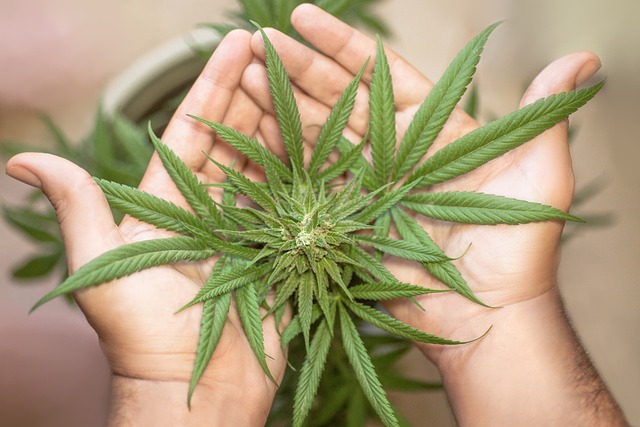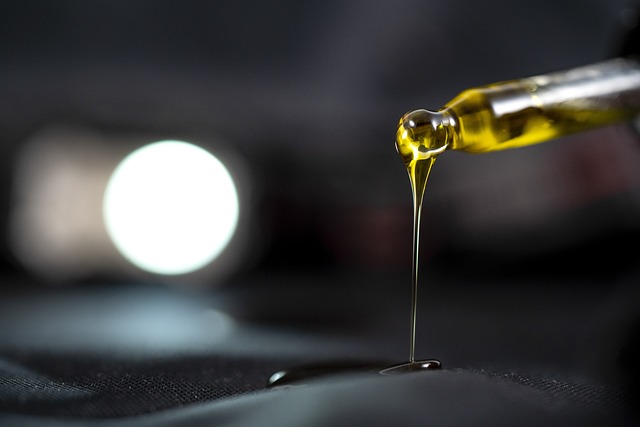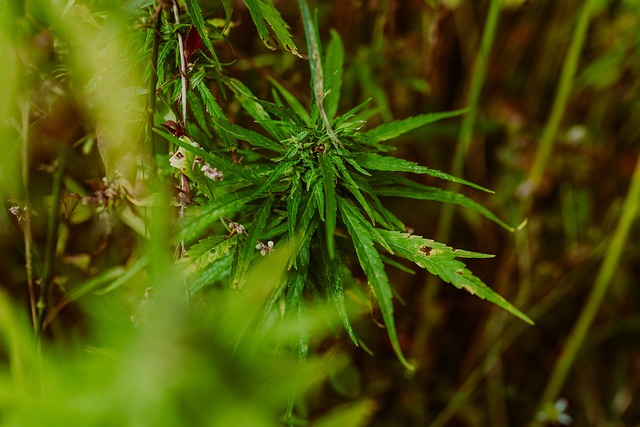Delta 9 THC-containing gummies have a complex legal status within the European Union, with individual member states varying in their regulations. As of the latest information, some EU nations have legalized medical cannabis, while others restrict or prohibit these products due to their psychoactive effects. Consumers and producers must understand the specific laws in their jurisdiction, as THC's potency requires careful dosage to avoid overconsumption and its associated impairment. The delayed effects of edibles contrast with the immediate impact of smoking or vaping cannabis. Users should start with a low dose to assess individual sensitivity, which can be affected by various factors including metabolism and food intake. Safety in storage is crucial, especially given the appeal of gummies to children and pets. Adherence to the EU's Novel Food Regulation and local laws, such as the 0.2% THC limit, is essential for legal compliance.
Distinct from THC, cannabidiol (CBD) is more widely accepted in the EU, provided it contains less than 0.2% Delta 9 THC by weight. The legal landscape for these compounds necessitates consumer awareness and vigilance due to the patchwork of regulations across Europe. In countries like Germany and Italy, medical cannabis, including products with Delta 9 THC, is available through a prescription. In contrast, countries such as Finland and Poland only permit CBD use. Always verify the latest legal information before purchasing or using Delta 9 THC gummies, considering their legality, potency, and purity from reputable sources that comply with EU regulations for a safe and compliant experience.
Delta 9 gummies have become a popular consumption method for those seeking the effects of THC. As an edible product, they offer a discreet and long-lasting experience. This article delves into the nuances of delta 9 gummies, from their legal status in EU countries to understanding how they compare with CBD products. We’ll guide you through the differences in effects and provide insights on choosing high-quality options. Additionally, we’ll cover safe consumption practices and proper storage to ensure a positive experience with these cannabinoid treats. Whether you’re new to delta 9 THC or looking to expand your knowledge, this comprehensive overview will equip you with essential information.
- Understanding Delta 9 Gummies: A Comprehensive Overview
- Delta 9 THC vs CBD: Knowing the Differences and Effects
- The Legal Status of Delta 9 Gummies in EU Countries: What You Need to Know
- How to Choose High-Quality Delta 9 Gummies: Factors to Consider
- Safe Consumption and Storage of Delta 9 Gummies: Best Practices and Tips
Understanding Delta 9 Gummies: A Comprehensive Overview

Delta 9 gummies, a form of cannabinoid-infused edibles, have gained significant attention across various regions, including EU countries. These gummies contain Delta 9 tetrahydrocannabinol (THC), the primary psychoactive component found in cannabis. It’s crucial to note that the legal status of Delta 9 THC-containing products varies within the EU; while some countries have legalized medical cannabis, others maintain strict regulations or prohibitions. Understanding the legal landscape is the first step for consumers and producers interested in Delta 9 gummies.
When considering Delta 9 gummies, one must be aware of the dosage, as the effects of THC can be potent and long-lasting. The onset of effects from edibles is typically slower than smoking or vaporizing due to how the body metabolizes the THC. Users should start with a low dose to gauge their individual response before consuming more. Additionally, the effects can be influenced by various factors, including metabolism, tolerance, and whether the gummies are consumed on an empty or full stomach. It’s also important to store these products safely, as they can be appealing to children and pets. Always ensure that you are in compliance with local laws when purchasing, possessing, or using Delta 9 gummies in EU countries.
Delta 9 THC vs CBD: Knowing the Differences and Effects

Delta 9 tetrahydrocannabinol (THC) and cannabidiol (CBD) are two prominent compounds found in the cannabis plant, each offering distinct effects and experiences. While both substances interact with the body’s endocannabinoid system, their legal statuses across EU countries vary due to differing regulations concerning psychoactive substances. Delta 9 THC is the primary psychoactive component of cannabis, responsible for the ‘high’ associated with its use. It can induce euphoria, altered perception, and relaxation but also impair cognitive functions and motor skills. Conversely, CBD is non-psychoactive and has gained popularity for its potential therapeutic benefits without the intoxicating effects of THC. It may help alleviate anxiety, pain, and inflammation, and is more widely accepted across EU countries, provided it contains less than 0.2% Delta 9 THC by weight. Users must be cognizant of their local regulations to ensure compliance with the legal limits of Delta 9 THC when consuming these products, as the legality can differ from one country to another within the EU. Understanding the differences between Delta 9 THC and CBD is crucial for consumers seeking specific effects or therapeutic outcomes, and for ensuring they are using products that are legally permissible in their region.
The Legal Status of Delta 9 Gummies in EU Countries: What You Need to Know

Delta 9 tetrahydrocannabinol (THC) gummies, a popular edible form of cannabis, exist in a complex legal landscape within European Union countries. It’s crucial for consumers to be well-informed about the varying regulations across different EU jurisdictions, as they can significantly impact one’s ability to legally possess and consume these products. As of the knowledge cutoff date, the legal status of Delta 9 THC gummies in the EU varies by country, with some member states permitting medical cannabis products that include Delta 9 THC, while others have strict policies against all forms of THC due to its psychoactive properties.
Consumers interested in the legal aspects of Delta 9 THC gummies should first consider the specific laws within the EU country they are in or planning to visit. For instance, countries like Germany and Italy have legal medical cannabis programs, where products containing Delta 9 THC can be obtained with a prescription from a certified healthcare provider. In contrast, countries like Finland and Poland have more restrictive policies, allowing only CBD products without the psychoactive component. The EU’s Novel Food Regulation also plays a role in determining the legality of Delta 9 THC gummies, as these products must be registered and approved under this framework to be sold within the EU market. It’s imperative to stay updated on the evolving legal landscape, as regulations can change, potentially impacting the availability and legality of Delta 9 THC gummies in the EU. Always verify the latest local laws and regulations before purchasing or consuming these products.
How to Choose High-Quality Delta 9 Gummies: Factors to Consider

When exploring the world of Delta 9 gummies, especially within the context of EU countries where legality varies, it’s crucial to distinguish between high-quality and subpar products. A key factor in choosing high-quality Delta 9 gummies is verifying their compliance with local regulations. In the European Union, the legal status of Delta 9 THC-containing products can be murky, with some countries permitting certain types of cannabis products for medical or recreational use, while others maintain strict prohibitions. Therefore, before purchasing, it’s essential to ensure that the product is legally available in your region. Additionally, reputable manufacturers will provide clear and detailed lab results, which confirm the potency and purity of their gummies. These lab reports should ideally showcase the presence of Delta 9 THC within the legal limits set by EU regulations. Furthermore, the extraction method used to derive Delta 9 THC should be safe, clean, and efficient, avoiding any harmful solvents or practices that could compromise product quality. By focusing on these aspects, consumers can make informed decisions and enjoy a safe and enjoyable experience with Delta 9 gummies in compliant EU countries. Always prioritize products from manufacturers with a transparent production process, adherence to local laws, and a commitment to consumer safety to ensure the best possible experience with Delta 9 gummies.
Safe Consumption and Storage of Delta 9 Gummies: Best Practices and Tips

When incorporating Delta 9 gummies into your wellness routine, it’s crucial to prioritize safe consumption and proper storage, especially considering their legal status in EU countries. To ensure a safe experience, start by verifying that Delta 9-THC is legal in your specific EU location, as regulations can vary by country and region. Once you’ve established legality, adhere to the recommended dosage as indicated on the product label or advised by a healthcare professional. This helps prevent overconsumption, which can lead to unwanted effects.
Storage is another key factor in maintaining the efficacy and safety of your Delta 9 gummies. Keep these products in a cool, dry place away from direct sunlight and children’s reach. The ideal storage condition is typically in a sealed container in a refrigerator, which can preserve the potency and prevent any degradation of the compounds. Additionally, always use an opaque container to protect the gummies from light, which can affect their quality over time. By following these best practices for consumption and storage, you can enjoy Delta 9 gummies responsibly and legally within the EU. Remember to stay informed about any changes in local regulations regarding cannabinoids, as compliance is paramount for a safe and enjoyable experience.
